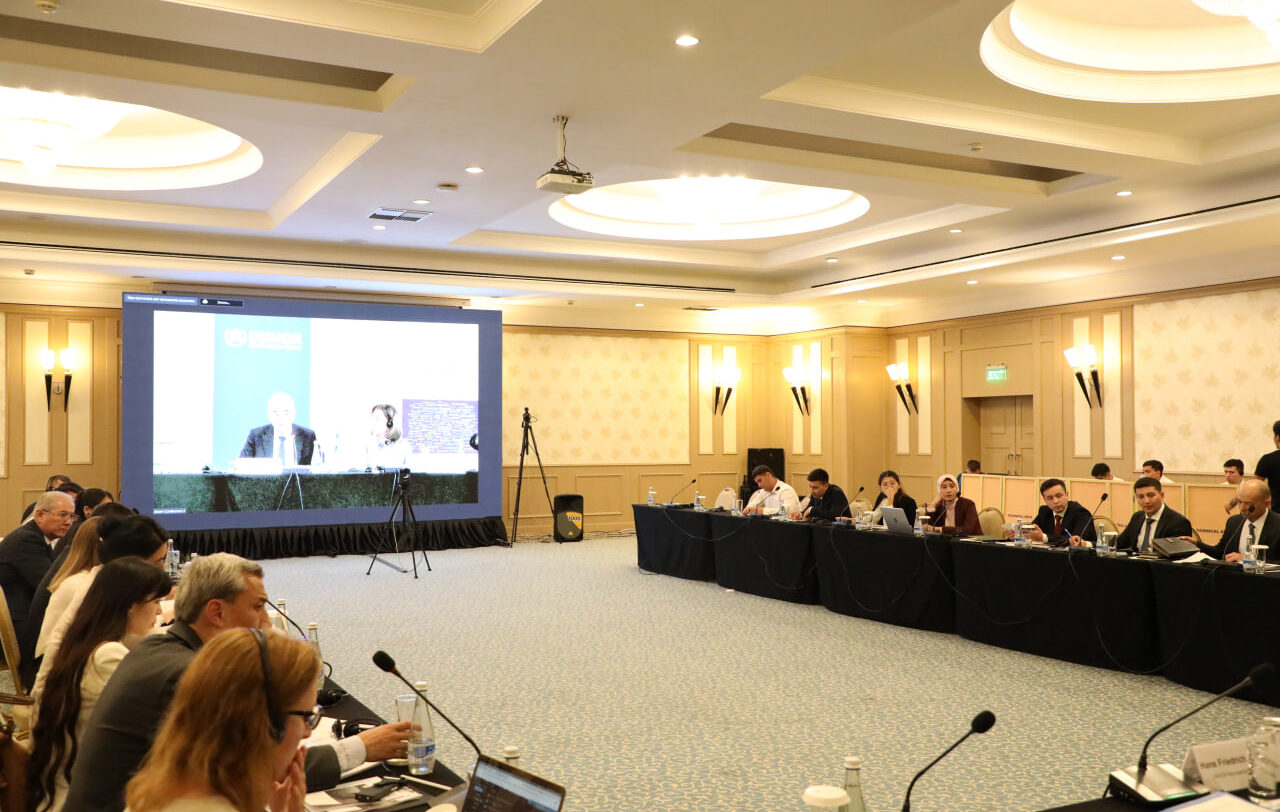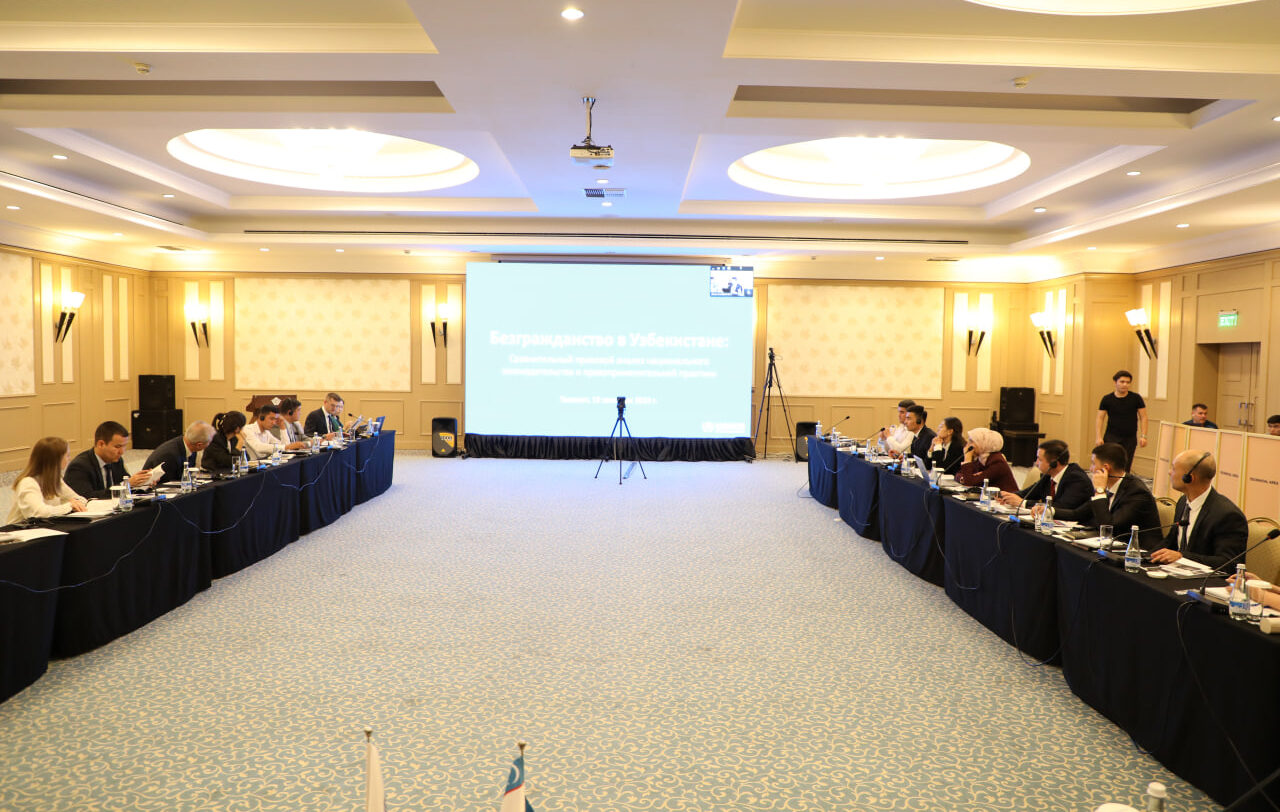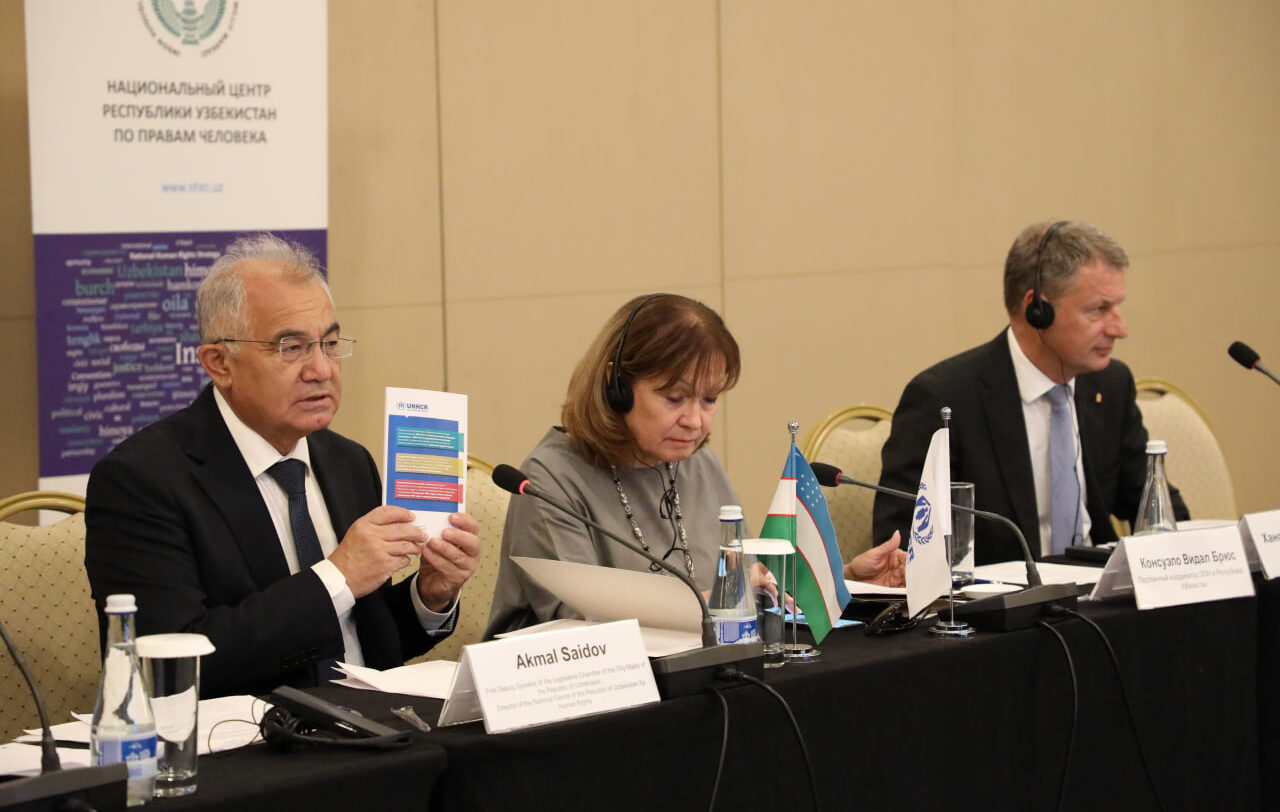TASHKENT – On 19 September, the National Human Rights Centre of the Republic of Uzbekistan (NHRC), jointly with UNHCR, the UN Refugee Agency, presented a Comparative Legal Analytical Study on Statelessness in Uzbekistan, and Uzbek translation of the Inter-Parliamentary Union-UNHCR Handbook for Parliamentarians on Citizenship and Statelessness.
The publications were presented to Members of the Legislative Chamber and the Senate of the Oliy Majlis of the Republic of Uzbekistan, representatives of the Ministry of Foreign Affairs, the Ministry of Internal Affairs, the Ministry of Justice, the Office of the Authorized Person of the Oliy Majlis for Human Rights, and representatives of international organizations and development partners.
First Deputy Speaker of the Legislative Chamber of the Oliy Majlis of the Republic of Uzbekistan and Director of the NHRC, Akmal Saidov, delivered opening remarks alongside the UN Resident Coordinator in the Republic of Uzbekistan, Consuelo Vidal Bruce, and the UNHCR Representative for Central Asia, Hans Friedrich Schodder.
“The Republic of Uzbekistan is decisive strong steps to reduce and eradicate stateless on our territory”, said Professor Saidov. “Since 2014, more than one hundred thousand Stateless people have been identified in the Republic of Uzbekistan, and the cases of 83,793 have been resolved.”
Commissioned as part of the third joint annual workplan of the NHRC and UNHCR, the study provides a comprehensive legal analysis of the national legislation of Uzbekistan related to citizenship and statelessness and follow-up measures to harmonise legislation and practices.
The Handbook on Citizenship and Statelessness for Parliamentarians is a global publication with practical steps to reduce the incidence of statelessness, and examples of how protracted statelessness situations have been resolved through the joint work of governments, civil society, and the international community.
“The pursuit to end statelessness aligns with the Sustainable Development Goals and the core principle of leaving no one behind, as they strive to ensure the inclusion and protection of individuals,” said Ms. Bruce.
Statelessness, or the situation of not being recognized as a citizen by any country, affects millions of people around the world. Stateless and undocumented people often cannot access the most basic of rights, including access to education, formal employment, health services or marriage registration.
In 2014, UNHCR launched the global #IBelong Campaign to End Statelessness. Since then, Uzbekistan has progressed well in addressing the rights of stateless people. Key achievements of Uzbekistan include passing of an improved Citizenship Law in 2020, and amending its birth registration practices.
At the 30th session of the Universal Periodic Review at the Human Rights Council in 2018, the Government of Uzbekistan supported recommendations to accede to the 1954 Convention relating to the Status of Stateless Persons, and the 1961 Convention on the Reduction of Statelessness. Also this week, the NHRC and UNHCR, together with the Ministry of Internal Affairs of the Republic of Uzbekistan, will convene a technical seminar on procedures for determining the status of a stateless person and standards of the 1954 Convention.
“We remain committed to supporting the Republic of Uzbekistan in accelerating achievement of the #IBelong Campaign to End Statelessness by 2024, including strengthening advice and support for accession to the 1954 and 1961 Statelessness Conventions,” said Mr. Schodder.
As of mid-2023, Uzbekistan hosts 25,413 stateless people – the largest number in Central Asia – most of whom are ex-citizens of the former Soviet Union and their descendants.
The NHRC and UNHCR have been cooperating since 2020 to support Uzbekistan’s capacity to implement UPR recommendations related to the reduction and prevention of statelessness and the protection of refugees.
- Added: 20.09.2023
- Views: 3213
 Ўзбекча
Ўзбекча English
English Русский
Русский




